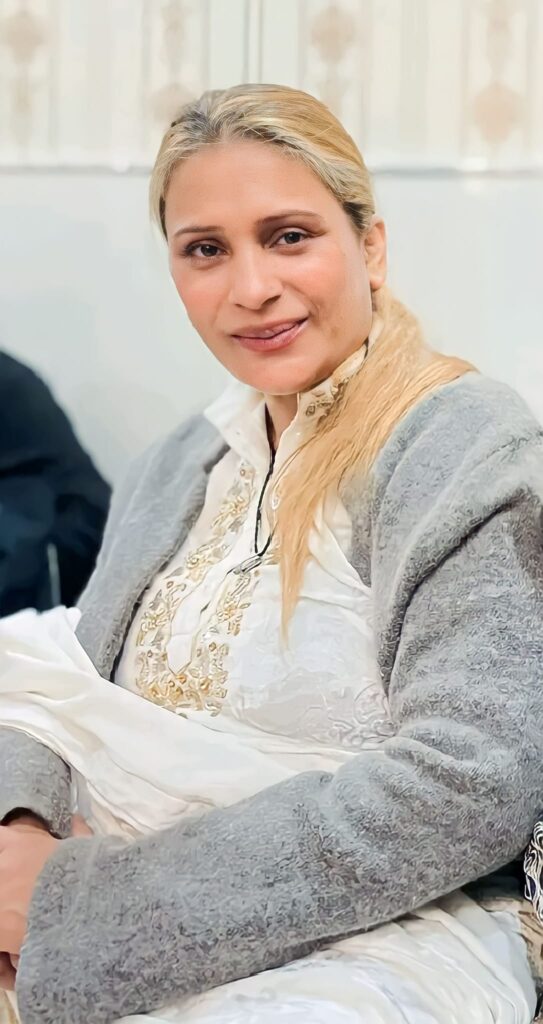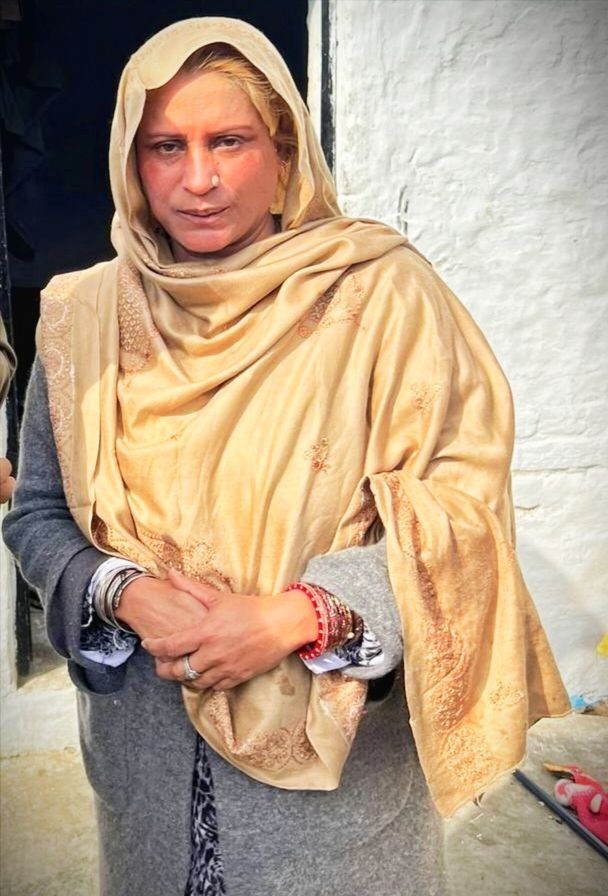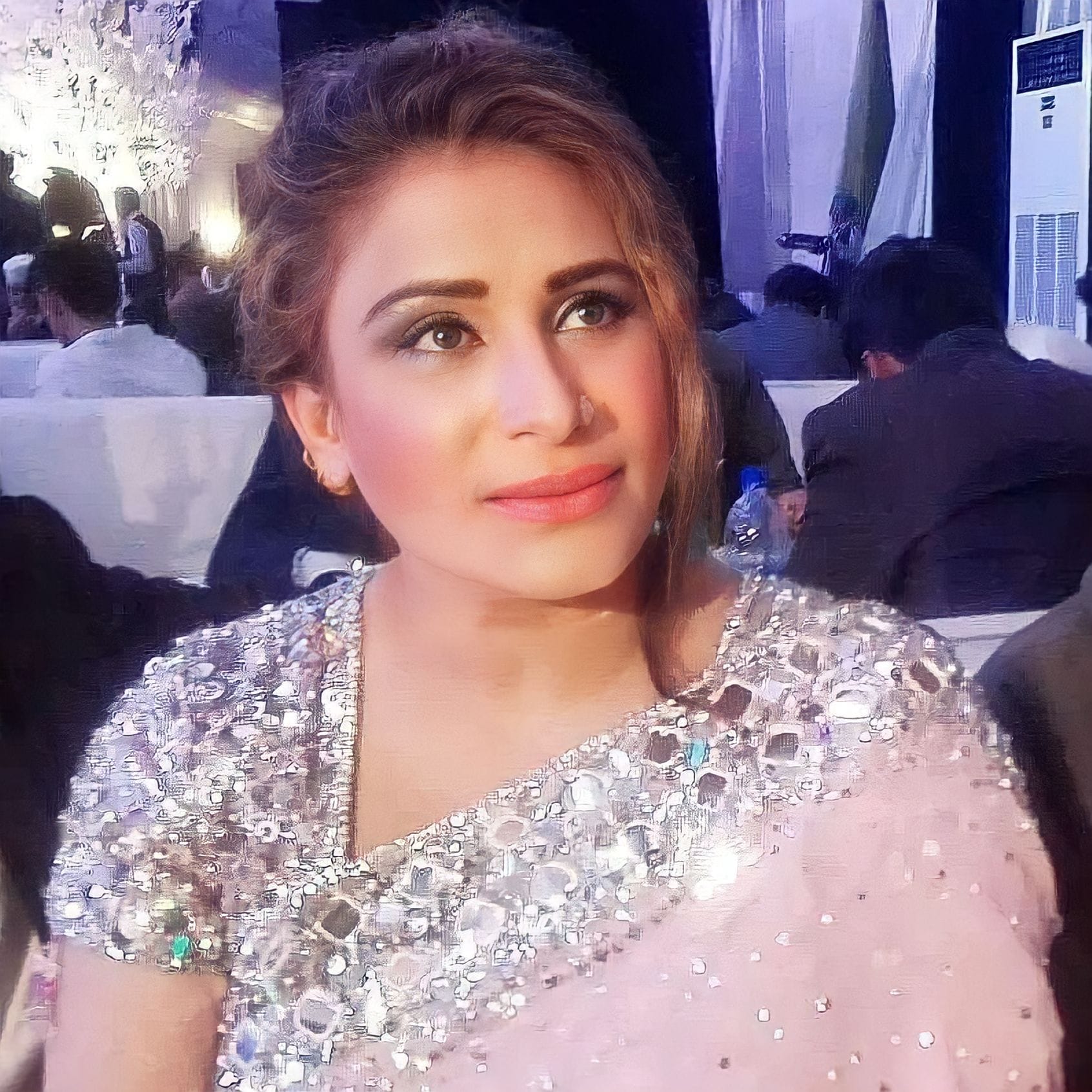Renowned singer Naseebo Lal, celebrated for her soulful voice and dynamic contributions to Pakistani music, has recently made shocking allegations of domestic violence against her husband. The acclaimed artist, whose powerful renditions in Siraiki, Punjabi, Urdu, and Marwari have won hearts across the nation and beyond, claims that she has endured both verbal and physical abuse at the hands of her spouse in Shahdara Town, Lahore. This explosive revelation not only casts a shadow over her personal life but also ignites a broader conversation about domestic abuse in Pakistan—a country where cultural, social, and legal challenges continue to complicate the fight against gender-based violence.
A Star in the Spotlight
Naseebo Lal has long been a towering figure in the Pakistani music industry. With a career spanning decades, she has become synonymous with emotional depth and authenticity in her performances. Her body of work includes numerous hits that resonate with diverse audiences, and her collaborations—most notably on Coke Studio alongside legendary figures like Abida Parveen—have cemented her status as one of Pakistan’s finest vocalists. Additionally, her contribution to the official PSL anthem “Groove Mera,” recorded with Aima Baig and the Young Stunners, further highlights her versatility and widespread appeal.
Despite her celebrated career, the singer’s personal life has recently come under intense scrutiny following her allegations of abuse. For a woman who has inspired millions with her artistry, coming forward with such painful admissions takes immense courage and speaks volumes about her determination to break the silence surrounding domestic violence.
The Allegations: A Grim Reality
According to reports from Shahdara Town in Lahore, Naseebo Lal alleges that her husband has subjected her to a sustained pattern of verbal and physical abuse over an extended period. These claims, coming from one of the music industry’s most respected figures, have sent shockwaves through both the media and the general public. While the details of the incidents have not been fully disclosed, the gravity of the allegations suggests a disturbing reality that many victims of domestic violence in Pakistan face—a reality that is often hidden behind closed doors.
The singer’s brave decision to speak out against her abuser is particularly significant in a society where domestic violence is frequently stigmatized, and victims are often pressured to remain silent. Her public statements, delivered with both resolve and vulnerability, underscore the urgent need for more robust support systems for women facing similar challenges.

The Societal Context: Domestic Violence in Pakistan
Domestic violence remains a pervasive issue in Pakistan, where cultural norms and legal shortcomings have historically made it difficult for victims to seek help. Many women, even those in the public eye, encounter societal pressures that discourage them from discussing personal matters openly. The case of Naseebo Lal, therefore, is not just an isolated incident—it is emblematic of a broader, systemic problem.
Activists and human rights organizations have long warned about the dangers of domestic abuse, calling for stricter laws and more effective enforcement to protect victims. In recent years, there has been an increase in public awareness campaigns and legal reforms aimed at addressing the issue, yet progress remains slow. Critics argue that the judicial process often fails to provide the timely and decisive action necessary to deter perpetrators, while societal attitudes continue to blame victims rather than hold abusers accountable.
Impact on the Music Community and Public Discourse
Naseebo Lal’s allegations have sparked a vigorous debate within Pakistan’s cultural circles. Fans and fellow artists alike have expressed solidarity with the singer, lauding her bravery for bringing her personal struggles into the public domain. Many view her actions as a catalyst for change, a moment that could encourage others who have suffered in silence to come forward and demand justice.
The music community, known for its progressive stance on various social issues, now finds itself at the forefront of a broader movement to address domestic violence. Public discussions have ignited on social media platforms and in public forums, with hashtags and campaigns emerging in support of the singer and all victims of domestic abuse. This burgeoning dialogue highlights a critical shift in public sentiment—a growing intolerance for violence within the sanctity of the home, regardless of a person’s social standing or professional success.
Legal and Social Ramifications
The legal implications of Naseebo Lal’s accusations could be far-reaching. In Pakistan, domestic violence cases are notoriously difficult to prosecute due to a combination of legal loopholes, lack of evidence, and societal bias. However, the prominence of the victim in this case may compel authorities to take a closer look at the circumstances surrounding the allegations.
Legal experts stress the importance of a transparent and impartial investigation that prioritizes the safety and dignity of the victim. If the allegations are substantiated, they could set a precedent for how similar cases are handled in the future. Such a case could push for reforms in domestic violence laws, ensuring that women—regardless of their social or professional status—receive the protection and justice they deserve.
Moreover, this case could also trigger a reevaluation of support systems available to victims of domestic abuse. Mental health services, legal aid, and community outreach programs all play a crucial role in helping survivors rebuild their lives. Advocates hope that Naseebo Lal’s courage will lead to increased funding and support for these essential services, particularly in regions where domestic violence is most prevalent.
Breaking the Silence: A Call for Reform
Naseebo Lal’s decision to publicly accuse her husband of abuse is a powerful reminder that domestic violence can affect anyone, regardless of fame or success. It challenges the notion that wealth, talent, or social status can insulate individuals from personal suffering. Her case underscores the urgent need for societal reform—one that dismantles the cultural and institutional barriers preventing victims from speaking out.
Public figures like Naseebo Lal have the potential to catalyze transformative change. By leveraging her influence, she can help shift public perceptions, encourage legislative reforms, and inspire other survivors to seek help. The hope is that her story will not only lead to justice in her case but also contribute to a safer, more supportive environment for all women in Pakistan.
The Role of Media and Society
Media coverage of domestic violence is crucial in shaping public opinion and driving policy changes. Responsible journalism can bring critical issues like these into the national spotlight, ensuring that they are addressed at both community and governmental levels. However, media outlets also have a duty to report such stories with sensitivity, avoiding sensationalism while providing a platform for the voices of victims.

In Naseebo Lal’s case, balanced reporting is essential. While the media must not overlook the severity of the allegations, it is equally important to protect the privacy and dignity of the individuals involved. Journalists and commentators are urged to consider the broader societal implications of their coverage, striving to foster a dialogue that leads to real-world improvements in the fight against domestic violence.
Looking Forward: Hope Amidst the Turmoil
As the investigation into these allegations proceeds, the focus must remain on ensuring that justice is served and that the rights of all victims are upheld. Naseebo Lal’s courageous admission could very well be a turning point in the public discourse on domestic abuse in Pakistan. It is a moment that calls for introspection at all levels of society—from individual families to the highest echelons of government.
For many, this case serves as a stark reminder of the hidden struggles that countless women endure in silence. It underscores the need for a collective effort to support victims and hold abusers accountable. As activists, legal experts, and community leaders come together to address these issues, there is hope that lasting change is on the horizon.
Conclusion
The allegations of domestic violence made by Naseebo Lal against her husband have ignited a firestorm of public debate, casting a long shadow over the glittering world of Pakistani music. Yet, beyond the headlines lies a much deeper, systemic issue that affects millions of lives. Her story is not just about personal pain and betrayal—it is a call to action, urging society to confront and dismantle the structures that enable domestic abuse.
In speaking out, Naseebo Lal has given a voice to countless women who have suffered in silence, challenging cultural taboos and igniting a movement for change. Her bravery may well pave the way for stronger legal protections, more robust support systems, and, ultimately, a safer, more just society for all. As the legal and social ramifications of her case unfold, one can only hope that her courage will inspire meaningful reforms that benefit not just herself, but every woman who has ever felt trapped by the cycle of domestic violence.
In a nation where the struggle against gender-based violence is far from over, Naseebo Lal’s story is a poignant reminder that true strength lies in speaking out. It is a testament to the power of resilience and the unyielding spirit of those who refuse to be silenced. As Pakistan grapples with these complex challenges, the world watches, hopeful that her fight for justice will resonate far beyond the borders of Shahdara Town, inspiring a future where every voice is heard and every victim is valued.










